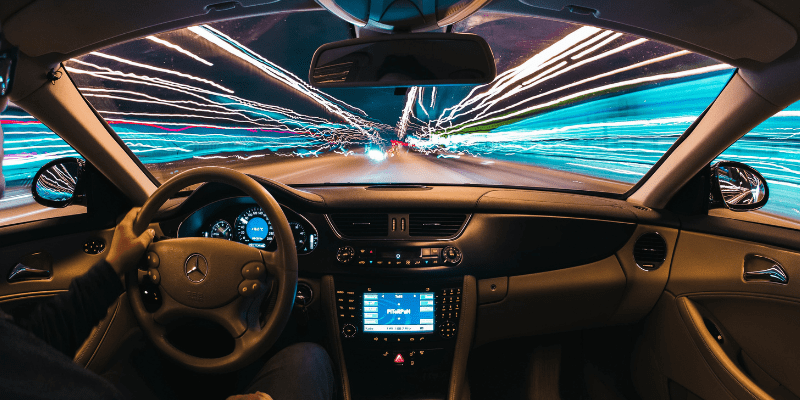In recent years, the world has witnessed remarkable advancements in artificial intelligence (AI), and AI-powered assistants have become an integral part of our daily lives. These intelligent digital companions have made tasks easier, streamlined processes, and enhanced our overall productivity. As we look ahead to the next decade, it’s essential to understand the exciting developments and transformations that lie ahead for AI-powered assistants. In this article, we will explore the future of AI-powered assistants, examining the trends, challenges, and potential applications that will shape the way we interact with technology in the coming years.
Introduction
Enhanced Natural Language Processing (NLP)
One of the most significant breakthroughs we can expect in the next decade is the substantial improvement in Natural Language Processing (NLP). AI-powered assistants will become even more proficient at understanding and generating human-like text and speech. This advancement will enable more natural and seamless interactions between users and their AI companions, making communication smoother and more efficient.
As NLP technology evolves, AI-powered assistants will excel at handling complex conversations, understanding context, and responding with relevant information. This will be particularly beneficial in customer service, where AI assistants can provide personalized support, resolve issues, and answer inquiries with a human touch.
Multimodal Capabilities
The next decade will witness AI-powered assistants becoming more versatile with the integration of multimodal capabilities. These assistants will not be limited to text or voice interactions but will also incorporate visual and auditory input and output. This means users will be able to communicate with their AI assistants through a combination of text, speech, images, and videos.
For instance, users may ask their AI assistants to help them find a particular object in a photo, translate text from a foreign language in a video, or analyze data from a combination of sources. This multimodal approach will significantly expand the scope of AI-powered assistants, making them indispensable tools for various industries, including healthcare, education, and entertainment.
Personalization and Context Awareness
The future of AI-powered assistants will be all about personalization and context awareness. These assistants will not only understand user preferences and habits but also anticipate their needs and provide proactive assistance. Through continuous learning and data analysis, AI assistants will offer tailored recommendations, whether it’s suggesting a new recipe based on dietary restrictions or reminding you of important meetings and tasks.
Moreover, AI-powered assistants will seamlessly integrate with other smart devices and services, creating a unified ecosystem that understands your context and adapts accordingly. For example, when you walk into your smart home, your AI assistant will adjust the lighting, temperature, and music to your liking without any explicit commands.
AI-Powered Healthcare Assistants
The healthcare industry will experience a significant transformation with the emergence of AI-powered healthcare assistants. These assistants will assist medical professionals in diagnosing diseases, recommending treatment plans, and monitoring patient health remotely. AI will process vast amounts of medical data and provide doctors with insights that can lead to more accurate diagnoses and better patient outcomes.
Patients will also benefit from AI-powered healthcare assistants by receiving personalized health recommendations and reminders for medications and appointments. This technology will not only improve the quality of care but also reduce healthcare costs and increase accessibility, especially in underserved areas.
AI in Education
Education is another sector where AI-powered assistants will play a pivotal role in the coming decade. These assistants will provide personalized learning experiences for students, adapting the curriculum to individual needs and learning styles. They will offer real-time feedback and support, helping students grasp difficult concepts and track their progress.
Furthermore, AI-powered education assistants will assist teachers in managing classrooms more efficiently, automating administrative tasks, and providing insights into student performance. This will enable educators to focus more on teaching and mentoring, ultimately enhancing the quality of education.
Privacy and Ethical Concerns
As AI-powered assistants become more integrated into our lives, concerns regarding privacy and ethics will continue to rise. It’s crucial for developers and policymakers to address these issues proactively. Striking the right balance between convenience and privacy will be a challenge.
AI assistants will collect a vast amount of data to provide personalized services, and safeguarding this data will be paramount. Regulations and guidelines will evolve to ensure user data is protected, and transparency in data usage will become the norm.
Human-AI Collaboration
The future of AI-powered assistants is not about replacing humans but enhancing human capabilities. In the workplace, AI assistants will collaborate with employees to automate routine tasks, allowing humans to focus on more creative and strategic endeavors. This collaboration will lead to increased productivity and job satisfaction.
Conclusion
In the next decade, AI-powered assistants will continue to redefine the way we interact with technology and the world around us. With enhanced NLP, multimodal capabilities, personalization, and a growing presence in healthcare and education, these assistants will become indispensable in various aspects of our lives. However, as AI becomes more integrated into our daily routines, it’s crucial to address privacy and ethical concerns and ensure that AI remains a tool for enhancing human potential. The future of AI-powered assistants is bright, and it promises to make our lives more convenient, efficient, and enjoyable.



































